Diplomatic relations between Indonesia and Iran have entered their 70th year in 2020. In the midst of the coronavirus (covid-19) pandemic, the two countries continue to work together to overcome it.
The Ambassador of the Islamic Republic of Iran to Indonesia His Excellency (YM) Mohammad Khoush Heikal Azad said that Indonesia is one of the most important friendly countries for Iran. Both countries have a long history of language and culture apart from the fact that Indonesia is a country with the largest Muslim population.
In the Middle East, Iran is a country that has played a role in the political escalation that has occurred lately, although amid the unending embargo of the United States, Iran was able to survive despite the pressure of two pandemics, Covid-19 and the economic embargo of the US and western countries.
The Ambassador held an exclusive interview with the Mi’raj News Agency (MINA) Reporters Team at the Ambassador’s Residence, in Menteng, Jakarta on Thursday, September 24.
Also Read: Strengthening Bridges of Friendship and Cooperation between Indonesia and African Countries
On that good occasion, the MINA consisted of Editor-in-Chief Ismet Rauf, Head of Coverage Rana Setiawan, Arab Editor-in-Chief Rifa Berliana Arifin, English Chief Editor Sajadi, international reporter Astuti, and photographer Abdullah.
The following is the full interview excerpt:
MINA: The relationship between Indonesia and Iran has entered its 70th anniversary. With this age, could you describe the development of bilateral relations between the two countries? And which sectors have the two countries potential to improve?
Ambassador Azad: The 70th anniversary of diplomatic relations between Indonesia and Iran is the right moment for an official visit from the head of state and strengthens the relationship that has existed since 1950.
According to my experience who has served in Indonesia in the era of three different presidents, namely during the period of President Soeharto, President Soesilo Bambang Yudhoyono and also President Joko Widodo (Jokowi), I can say that the relationship between the two countries shows the determination and great interest of both parties to expand and strengthen this relationship.
Over time, of course, there may be misunderstandings that can occur in the relationship between the two countries. The effort made by both parties is to resolve the differences if there is in their relationship.
Broadly speaking and I would like to illustrate that this relationship is developing well. The climax was the meeting of the two presidents, namely President Hassan Rouhani and President Jokowi, who visited each other’s countries in 2015 and 2016.
In the development of bilateral relations, of course we focus on increasing economic cooperation, more obvious are the oil and gas sector, large industries, internet-based industries, and SMEs. Then we also want to carry out the next round of joint commissions in the economic sector and finalize an agreement to apply the Electronic Transaction Tax (PTE) rate between the two countries.
Also Read: Ambassador: Climate Change is the Main Cause of Floods in Pakistan
MINA: As Ambassador to Indonesia what is your view on Indonesia’s current position and role in regional and international issues, such as in the Kashmir, Rohingya, Xinjiang regions, world or regional peace?
Ambassador Azad: I would like to thank Indonesia as the Presidency of the UN Security Council last August for playing the role of an independent country and not subject to injustice.
Indonesia is a country with the largest Muslim population with Islam which is Rahmatan lil ‘alamin based on Pancasila so that it creates tolerance and togetherness.
In addition, Indonesia is a member of the G20 group of countries, a group of 20 major economies in the world, thus becoming a model for advanced economies in the Asia Pacific region.
It is estimated, Indonesia is one of the four countries with the largest economy in the world in 2045.
Indonesia with the mentioned potential has the ability to play its role in overcoming various problems and disputes in the Islamic world, namely the issues of Palestine, Kashmir, Afghanistan, China, and Myanmar.
There are at least five active roles for Indonesia in resolving conflicts at the international level, including playing an active role in supporting the struggle of the Palestinian people, resolving the border conflict between Thailand and Cambodia, the conflict between Cambodia and Vietnam and what is currently still ongoing is the peace process in Afghanistan.
Therefore, I also hope that Indonesia can mediate the conflict between Iran and Saudi Arabia.
Also Read: AMBASSADOR TALKS/Russian Ambassador: Attack on Ukraine Tough Choice to Make
I also noted that Indonesia resolves various issues and problems in various worlds in a unique way, namely dialogue and discussion without harming innocent parties.
I pay attention to western countries that defend human rights as a political tool for the independence of certain countries and also make it a political tool as happened in Iran.
The world countries must be careful of western countries that use human rights for political purposes.
MINA: What do you think about the harmony of the religious community in Indonesia?
Also Read: Palestinian Administrative Detainees Boycott Occupation Courts for 40th Consecutive Day
Ambassador Azad: I would like to share my experience for the first time on duty. In the era of President Soeharto, when I was in charge, I saw only two conflicts in a period of five years. This shows Indonesian society if any conflicts are resolved in a peaceful manner.
But I believe and I admit that the issues we face today are more complex than before because some issues that were emphasized by certain parties make the issues we are facing now more complex than before.
Related to the idea of Wasathiyyah Islam conveyed by the Vice President of the Republic of Indonesia, KH. Ma’ruf Amin, for us it is Islam which means “rahmatan lil ‘alamin”, moderate Islam. In his view, the problems that exist in society can be seen as a whole.
With this approach, the issues of radicalism and extremism can be resolved from the root of the problem, through various approaches and dimensions, especially the approach to economic empowerment and socio-cultural empowerment, and so on.
Also Read: Interview with Pakistani Ambassador to Indonesia: Kashmir Solidarity Day
There are many views about Islam in Indonesia, but all of them still promote tolerance. Islam in Indonesia is the archipelago, but all of them maintain the value of tolerance in religion.
Indonesia as a country with the largest Muslim majority in the world is able to practice a rahmatan lil ‘alamin and moderate Islam by prioritizing the values of Pancasila.
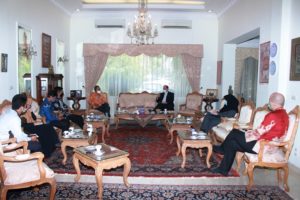
The atmosphere of an exclusive interview by the MINA News Agency Journalist Team with the Ambassador of the Islamic Republic of Iran to Indonesia His Excellency (YM) Mohammad Khoush Heikal Azad at the Ambassador’s residence, in Menteng, Jakarta, Thursday (24/9/2020) (Photo: Doc. MINA)
MINA: Could you expalin the strategy that has been carried out by Iran to date be able to survive the Covid-19 pandemic even though there are the US & its allies’ economic embargo?
Ambassador Azad: The Islamic Republic of Iran, where he is now 41 years old, has been sanctioned many years ago by the United States. We call the embargo they imposed on Iran a form of economic terrorism against us. Now, with the Covid-19 pandemic, another dimension of the terrorism they carry out against us has added to the form of health terrorism against (us) society.
Also Read: Khaled Meshaal to MINA: Indonesia is at the Forefront of Those Who Support Palestinian Cause
I would like to share the latest developments in the Covid-19 pandemic case in Iran. A total of 430 thousand people were exposed to Covid-19, of which 25 thousand died.
Alhamdulillah, 365 thousand people were declared cured. So far, we have conducted 4 million tests in Iran out of a total population of 84 million.
We have an approach to handling the Covid-19 Pandemic, namely Covid-19, of course with the help of Allah Almighty we must defeat it, but at the same time we must live side by side with Covid-19.
You certainly know that handling the Covid-19 pandemic costs a lot of money. There are countries that spend tens of billions of US Dollars.But when Iran applied for a USD 5 billion loan to the IMF (International Monetary Agency), the United States got in the way of Iran’s efforts.
Since the first day of the pandemic, we have formed a committee on handling Covid-19 in Iran which is directly chaired by the President of Iran and the main coordinator is the ministry of health in collaboration with relevant ministries. We handle case by case, take policy case by case and this policy is updated based on existing developments.
Also Read: Ambassador: Many Opportunities on Relationship Between Indonesia-UAE
With a good health infrastructure and skilled medical personnel recognized by the World Health Organization (WHO), we are doing good handling and continue to fight this pandemic.
If there is a red zone in our region, restrictions are carried out through various local governments in Iran.
MINA: How does Iran respond to the current geopolitical situation of the Middle East, especially in terms of normalizing relations between the Gulf Arab countries and Israel.
Ambassador Azad: Of course the Israeli regime is trying its utmost to spread dissension and slander between Iran and Arab countries. They carried out a black campaign called Iran phobia in the Middle East to put aside the issue of Palestine, to keep each country busy, so that Israel could continue their occupation of the Palestinian territories.
Also Read: Exclusive Interview with Indonesian Ambassador to Afghanistan
They spread dissent and conflict between Iran, Saudi Arabia, Turkey to maintain the status quo in the region.
Not long ago, through a forum attended by 200 Ahlussunnah Wal Jamaah clerics in Qatar where three Ahlussunnah Wal Jamaah scholars from Iran also joined in the meeting. They forbid any recent normalization of relations between Arab countries and Israel.
Of course this (normalization of relations with Israel) seems to waste 70 years of Palestinian resistance. They (Palestinians) have put up tremendous resistance. Arab countries which normalize relations with Israel actually want to convey the message that resistance is no longer effective, we must accept Israel’s existence and accept normalization of relations. It is unfortunate not to look at the Arab peace plan (Arab Peace Initiative), various agreements in OIC countries, and do not respect international regulations and UN resolutions related to the Palestinian issue.
The United Arab Emirates (UAE) conveyed to Iran that this normalization of relations with Israel did not pose a threat to Iran. But whether the UAE can guarantee this. Can they guarantee that security is maintained. Actually, we don’t want to interfere in the internal and national affairs of other countries, it’s just that if there is insecurity that comes from these countries, of course they must be held responsible.
President Rouhani in his speech at the UN General Assembly said that Iran had made various suggestions to address security issues and maintain peace in the Middle East region. Among other things, holding regional dialogues, non-aggression pacts between regional countries or joint efforts to fight extremism and radicalism together. The point is a campaign to maintain peace together in the Middle East region.
In this regard, Indonesia has attempted to be part of peace in the Middle East region. Foreign Minister Retno Marsudi has visited Iran, visited Saudi Arabia. But we don’t see any response from Saudi Arabia. Iranian Foreign Minister Dr Zarif said that we are always ready to carry out a dialogue with Saudi Arabia in resolving some possible misunderstandings to maintain security together in the region.
MINA: What is the commitment that Iran will continue to make to support Palestine?
Ambassador Azad: After the victory of the Iranian Islamic Revolution, the relationship between Iran and the Israeli regime was eliminated.The Israeli embassy is closed in Iran, given to the State of Palestine. The United States is out of our region. We are getting closer relations with countries that support Palestinian independence.
I am sure MINA representatives when I held gatherings with national and international media in Jakarta were here. During the meeting I explained Iran’s proposal to resolve the Palestinian issue, namely democracy for all indigenous people.
Iran offers a referandum on all Palestinian territories. The Palestinian people must determine their own destiny. The Israeli Zionist regime’s policy of colonizing and hegemony should be a comprehensive solution so that the people in the region will determine their fate in the future.
Iran’s proposal to the UN has four pillars. One of the pillars is that all refugees from Palestine must return to their territory. In the referandum, it will be asked directly to all Palestinian people (Palestine before the Balfour Declaration). Palestinians of various denominations and religions must be involved in the referandum.
The majority vote will determine the country’s political regime and the most votes will also determine the fate of immigrants to the Palestinian territories. In this proposal of course there is an implementation mechanism as well. All sections of society, whatever their beliefs, they must participate.
Then, there is an international project to identify Palestine itself. This project identifies Palestinian refugees in various parts of the world. Who carried out the execution? The execution was carried out by an international agency under the direct supervision of the United Nations, identifying Palestinian refugees.
This Iranian proposal has actually been submitted for a long time. And this proposal is based on democratic values and human rights.
The United Nations and the international community are responsible for liberating the Palestinian territories and Jerusalem from Israeli occupation.
In addition, the UN must also give the Palestinian people the right to determine their own destiny and establish an independent Palestinian government, of which Jerusalem is the capital. (T/RE1)
Mi’raj News Agency (MINA)






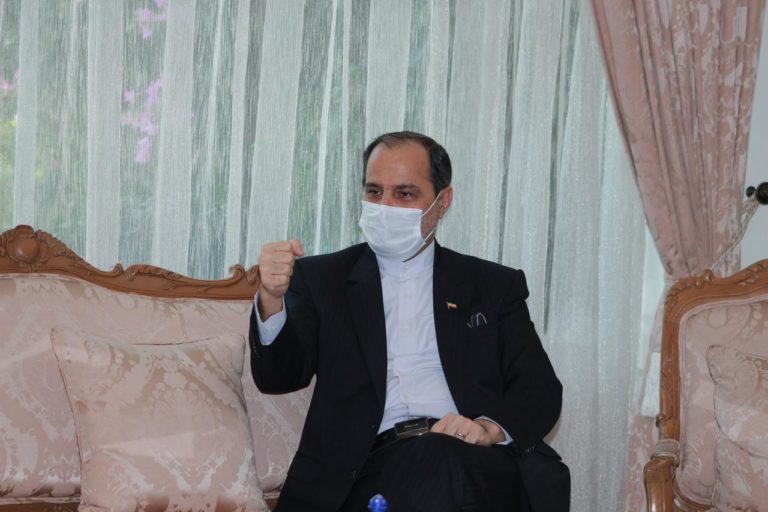


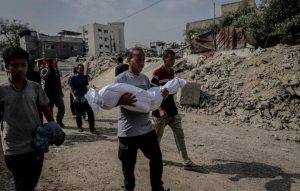
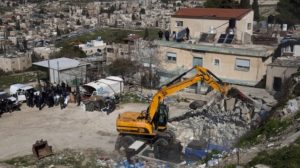
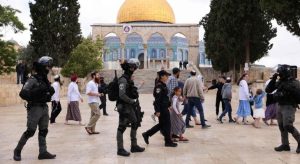
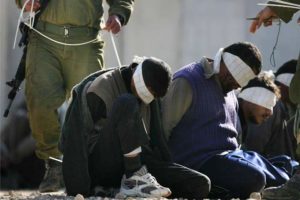

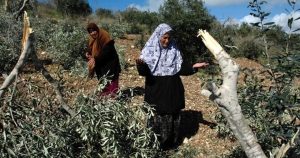


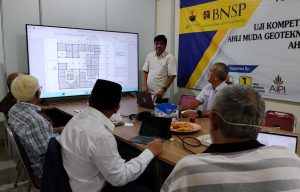
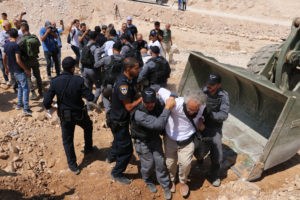
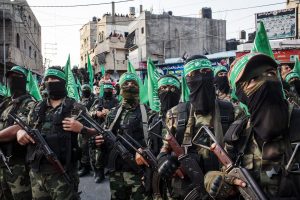
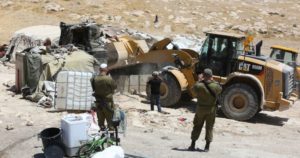












 Mina Indonesia
Mina Indonesia Mina Arabic
Mina Arabic